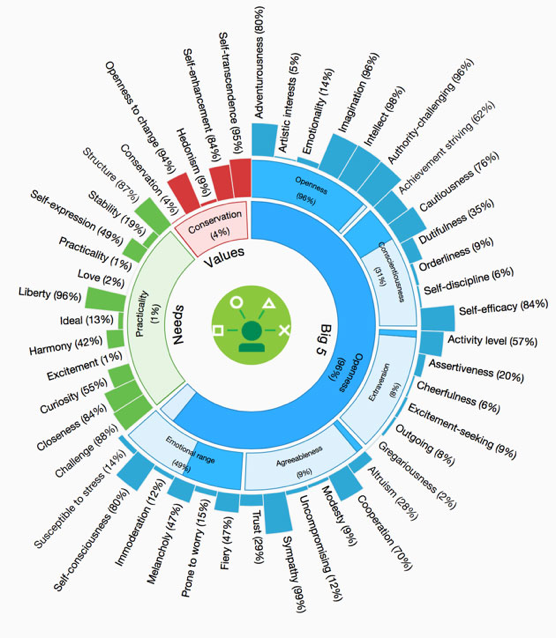genericity and artificiality
Left Real, Right Predicted
Finite variations within genomes explain most of the differences between our faces. The rest of the differences seem to be due to wear and tear.
There is a correlation between the extent of observable variation and the feeling of naturalness. An object feels natural if the variation among the relevant population looks infinite. Otherwise it feels artificial.
Despite all the apparent complexity and drama, variations among personalities too seem to be quiet contained. Big Five personality traits explain most of the variance. The output structure of IBM Watson's semantic take on personality analysis does not look too rich neither.
Watson Personality Insights takes your social media feed as an input and spits out a graph like above as an output.
Of course, personality is a relational concept. How one behaves changes with respect to who one is interacting with. But focusing solely on one's relationship with a common reference point should be good enough for comparative purposes.
This approach is similar to extracting a variant from a genome by comparing it to a reference genome constructed out of the set of all genomes of the relevant population. Everyone's social media feed reveals how they interact with "the public", which acts sort of like a "reference personality", an average entity representing one's social network.
On a related note, dialogues with humanoid robots feel unnatural today partly due to the non-relational aspects of their personalities. Someone behaving in exactly the same manner regardless of context is deemed to be abnormal.
Consistency shows character, but too much of it is inhuman, as so eloquently pointed out by Walt Whitman in his famous quote: "Do I contradict myself? Very well. Then I contradict myself. I am large. I contain multitudes."



